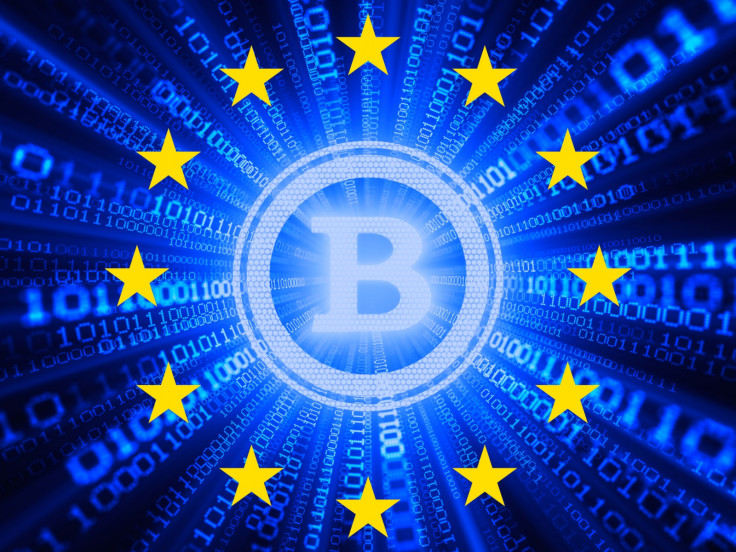Blockchain heavyweights meet in Brussels for intellectual property workshop
Blockchain experts met to look at how it can protect and enforce intellectual property.

A group of blockchain experts and enthusiasts met under the auspices of the EU in Brussels for a two-day workshop about how blockchain can protect and enforce intellectual property.
There was a varied level of technological understanding in the room, including blockchain heavyweights such as Mark Smith, CEO, Symbiont; John Lilic, who looks after enterprise arrangements for ConsenSys; Tyler Smith of FreeMyVunk who is also handling innovation at BHP Billington; Sian Jones, founder of EDCAB; and Sandra Ro, who heads up digital and blockchain for CME Group.
The event was organised by a "low profile" branch of the EU which is looking at IP and technological advancements. As expected, there were a few lawyers in the room and it didn't take long before the subject turned to The DAO debacle.
Tyler Smith gave an impassioned apology for the decision to hard fork Ethereum.
"It's not about computers running the world, it's about how humans can use them to gain efficiency. Ethereum employed social consensus, at great cost to the network. So much so that a new public chain came out of this. And personally I think what they did was great."
John Lilic added: "I would say consensus reached by companies within board rooms might seem elegant but it might also be messy and chaotic; we just don't know about it. Ethereum's consensus takes place in the open. So our mess was very public."
Bringing the focus back to the question of IP, Sian Jones pointed out that if these chains were being used to store this sort of data, then you would suddenly have two sets of records – not ideal.
Marc Kaufman, an attorney from Reed Smith who was representing the Digital Chamber of Commerce, pointed out that these are high class problems facing the developed world; people without a means of registering property in developing countries need blockchain technology for this type of use in any case.
Some members of the group wanted to know more about the content of smart contracts – how could these be automated, and could code take the pace of courts.
Sandro Ro pointed out that financial contracts involving things like interest rate swaps are already highly standardised using ISDA master agreements and so on. Ro went on to say that under the primary smart contract function there could be "nested" contracts attached.
"It's at a very early stage but the industry is working on this. There's a ton of inefficiencies and paper work that can be removed, but there still has to be legal jurisdictions. This is about businesses processes being streamlined," she said.
Giving a presentation on the work Symbiont has been doing with smart contracts, Mark Smith invoked new directions coming out of the highly productive partnership with the State of Delaware.
Smith pointed out that Delaware has its own Court of Chancery to deal with listed companies; for example, credit card companies or pharmaceutical companies abide by certain strictures known within the state.
He said Symbiont is in deep conversation with the Delaware Bar Association regarding the ways in which Special Purpose Vehicles might be party to smart contracts in respect of Delaware Court of Chancery and how the technology will work out dispute resolutions.
Keeping as much as possible on the distributed ledger is the key to this technology's power, declared Smith. "We all get this information at state. That means for regulators, they no longer need to be reactive. The can be proactive for a change and stop a crisis, avoid all the costs."
Two different use cases and approaches to digital ownership were explored by Unjo Music, the ConsenSys-based system of sharing musicians' rights via Ethereum, and FreeMyVunk, which also uses Ethereum to tokenise in-game items of value.
"When someone tells you that you own something in a virtual environment, you really don't," said Tyler Smith. "But that's all changing. It's a revolution; I call it a Revunkolution."
The whole idea of one's "digital net worth" and how that can be managed was taken a step further by Lilic. Think about Facebook as a "container for identity", he said.
"A collection of attestations from friends and family, over time becomes your identity. But Facebook could just delete your account. And it's no use to open a bank account, let's say.
"Blockchain can reverse that model. It allows you to build up a sovereign identity; I can gather attestations, upload biometrics. I can take it to Deutsche Post and get it scanned and signed as my identity. That has value.
"I can then take that attestation to UBS and have two attestations and it becomes expensive to spoof. And this sort of thing can also work for the origins of IP."
© Copyright IBTimes 2025. All rights reserved.





















